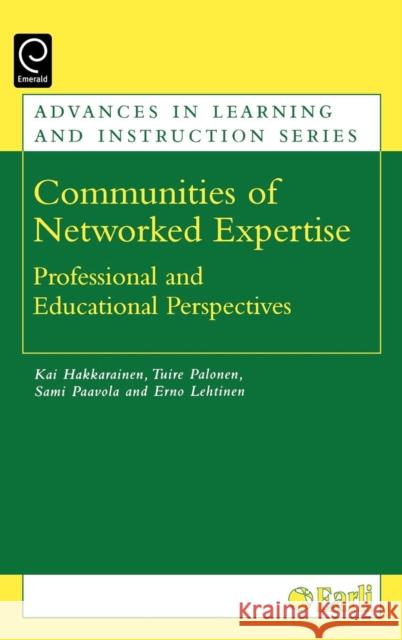Communities of Networked Expertise: Professional and Educational Perspectives » książka
Communities of Networked Expertise: Professional and Educational Perspectives
ISBN-13: 9780080445410 / Angielski / Twarda / 2004 / 244 str.
Relying on a series of empirical workplace studies as well as an extensive review of psychological, sociological and educational literature, the authors develop a framework for examining human competence as a process of networked expertise. Networked expertise refers to competencies that arise from social interaction, knowledge sharing, and collective problem solving. These are embedded in communities and organized groups of experts and professionals. Cognition and intelligent activity are not only individual and mental processes but ones which rely on socio-culturally developed cognitive tools. These include physical and conceptual artifacts as well as socially distributed and shared processes of intelligent activity embedded in complex social and cultural environments. Networked expertise is relational in nature. It is constituted in interaction between individuals, communities, and larger networks supported by cognitive artifacts, and it coevolves with continuously transforming innovative knowledge communities. The focus of the book is on analyzing the socio-cognitive foundations of human intelligent activity. The authors examine theories and models that help to understand individual and social aspects of processes of learning, development of expertise, knowledge creation, and innovation. These processes are studied both in the contexts of education and work, and are illuminated with numerous examples, and interview data. The main topics covered are the development of expertise, distributed cognition and shared expertise, collaborative and cultural learning, and inquiry-based and computer-supported learning processes. The basic tenet of the book is that knowledge sharing should be a core value in all organizations. This is the first step of answering to the challenges of emerging knowledge society.











